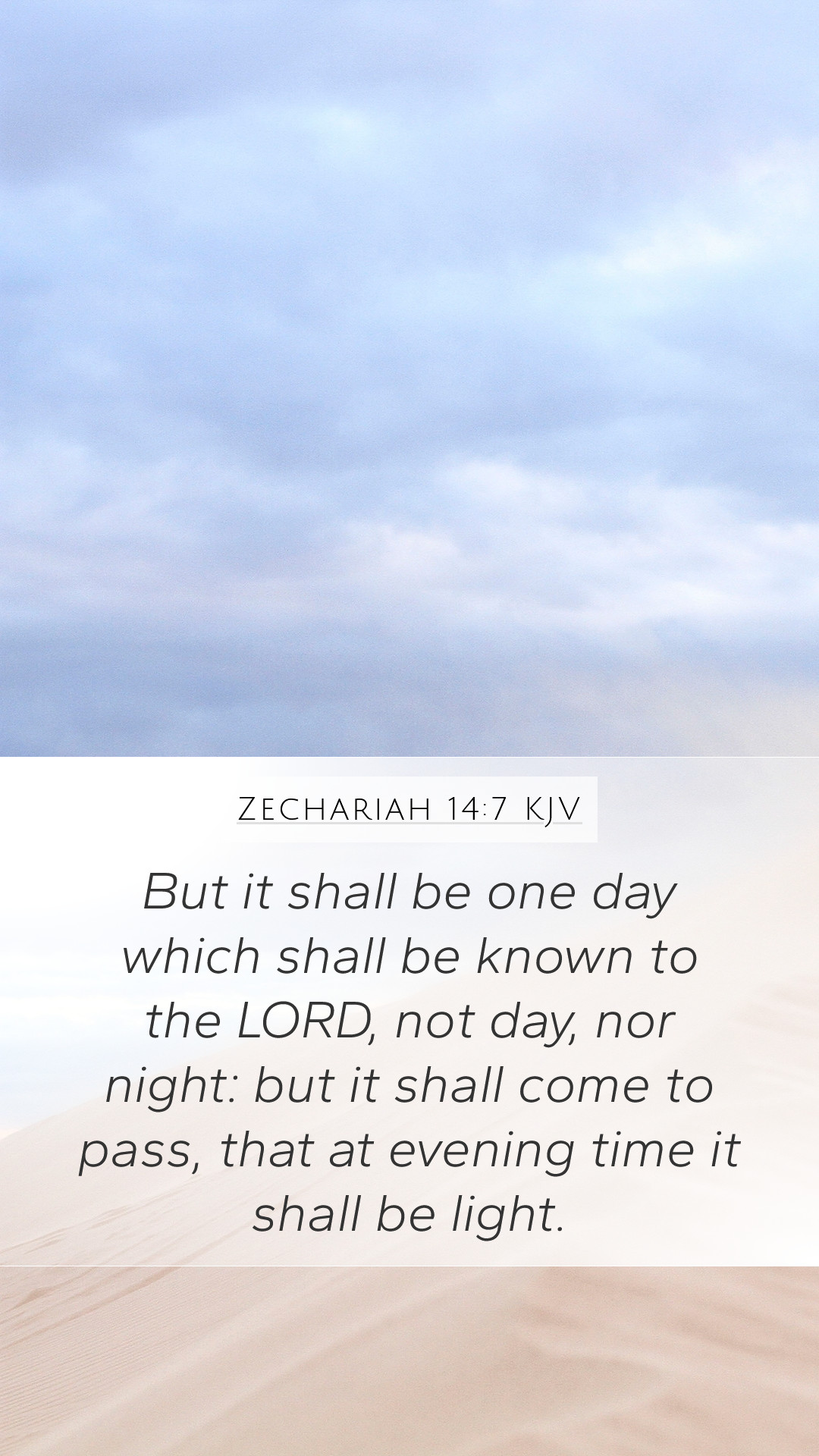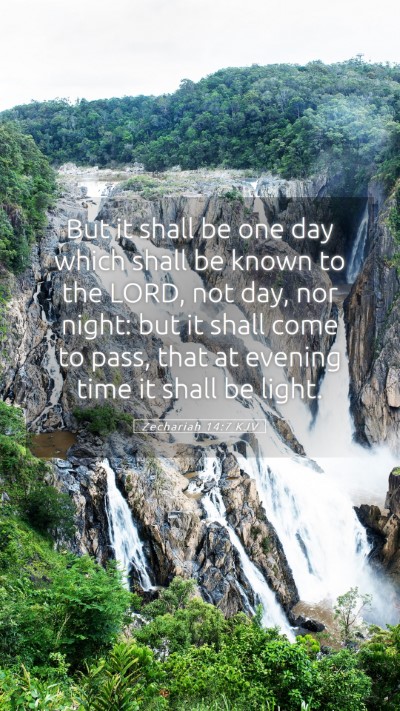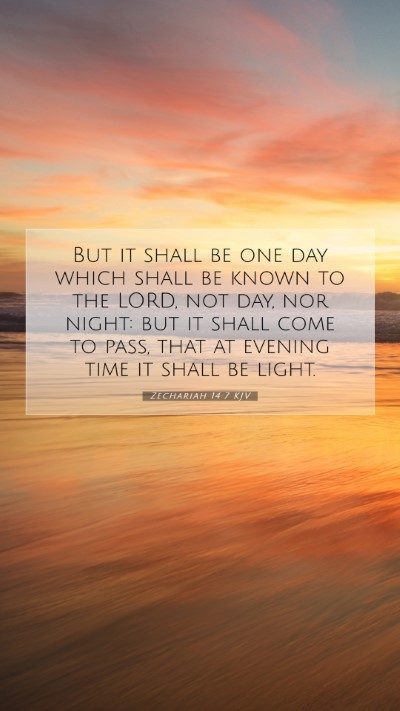Understanding Zechariah 14:7
Bible Verse: Zechariah 14:7 - "But it shall be one day which shall be known to the Lord, not day, nor night: but it shall come to pass, that at evening time it shall be light."
Overview of the Verse
Zechariah 14:7 is a profound verse that speaks of a future time when God's light will shine upon His people in a remarkable way. The imagery of day merging into night yet remaining illuminated emphasizes God's unique and divine presence. The insights from public domain commentaries provide various interpretations of this passage, shedding light on its significance within the larger biblical narrative.
Bible Verse Meanings and Interpretations
The following interpretations are distilled from esteemed commentaries:
- Matthew Henry's Commentary: This verse is seen as conveying the idea that God will bring about a state of enlightenment, describing the coming of the Lord as a day that transcends natural understanding. It emphasizes God's omnipotence and the hope for restoration.
- Albert Barnes' Notes: Barnes interprets this verse as foretelling a time of transformation. He suggests that this "one day" symbolizes the day of the Lord, characterized by the absence of darkness, representing the glory of God's kingdom fully realized.
- Adam Clarke's Commentary: Clarke focuses on the eschatological significance of the verse, suggesting it points to a time when the Lord will reveal Himself in such a manner that the distinctions between day and night will vanish. This signifies an era of divine truth and presence.
Key Themes from the Commentary
From a combined exegesis of these interpretations, we can extract several key themes:
- Divine Revelation: The "day known to the Lord" indicates a time when God fully reveals His plans. This ties into the overall theme of biblical prophecy as highlighted across the scriptures.
- Hope and Restoration: The imagery suggests a period of hope for God's people, where His presence dispels darkness and confusion, symbolizing a significant return to divine favor.
- Eschatological Significance: The verse is reflective of both Jewish and Christian eschatological views, pointing to a final state of existence where God's light reigns supreme.
Application of the Verse
Understanding Zechariah 14:7 can greatly enhance personal faith and community discussions in Bible study groups. Here are some practical applications:
- Encouragement in Trials: In contexts of darkness or confusion, believers can find hope knowing that God’s light ultimately prevails.
- Anticipation of God’s Kingdom: This verse inspires Christians to look forward to the fullness of God's kingdom, which is a frequent topic in New Testament theology.
- Reflection on God's Nature: The unique nature of God's revelation invites deeper exploration into who God is and how He interacts with creation.
Bible Cross References
Several other passages resonate with the themes found in Zechariah 14:7:
- Isaiah 60:19-20: Speaks of the Lord being an everlasting light for His people, highlighting the enduring nature of divine illumination.
- Revelation 21:23: Describes the New Jerusalem where the glory of God provides light, reinforcing the continuity of this theme throughout the Bible.
- John 8:12: Jesus declares Himself as the Light of the World, connecting the old prophetic messages to the New Testament revelation.
Conclusion
Zechariah 14:7 serves as a powerful reminder of God’s eternal presence and the hope of illumination in the lives of believers. By understanding this verse through various commentaries, individuals can enrich their Bible study insights and deepen their appreciation of Scripture as both a historical text and a source of spiritual guidance.


